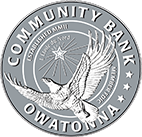by Jim Kreidler
Consumer Education Specialist, FTC
During these difficult economic times, it is easy to imagine our financial problems disappearing by winning a big prize. Who wouldn’t like to win a million dollars, a new car, or a vacation home? But if you get a call from someone saying, “You’ve won,” don’t believe the hype.
Here’s how it works. You get a call from someone who says they’re from Publishers Clearing House or some other well-known organization. They say, “Congratulations, you’ve won a million dollars, a Mercedes-Benz, and seven thousand dollars a week for life!” or some other amazing sounding prizes. Then they ask you to pay a “processing fee,” "taxes," or "shipping and handling charges," to claim your prize.
The scammers are trying to push you into a heightened emotional state, to knock you off balance just long enough to steal your money and personal information.
The fact is, Publishers Clearing House never notifies winners in advance. And anyone who says, “You’ve won. Now pay us,” is always scammer. Period.
Consider these tips to avoid this scam:
- Legitimate sweepstakes don’t make you pay a fee to get your prize. That includes paying "taxes," "shipping and handling charges," or “processing fees.” There’s also no reason to give someone your checking account or credit card number in response to a sweepstakes promotion.
- Don’t send money transfers or gift cards, or give personal information. Sending money transfers or gift cards (or providing the gift card numbers) is like sending cash: once the money’s gone, you can’t trace it or get it back. The same goes for sending money by mail or using a money order.
- Don’t trust your caller ID. Scammers can make any name or number show up on your caller ID. They might use an official-sounding name like Publishers Clearing House or Reader’s Digest.
Scammers don’t just scam one person. Tell your friends and family about the scam so they can avoid it. Then report it to the FTC: ftc.gov/complaint.
